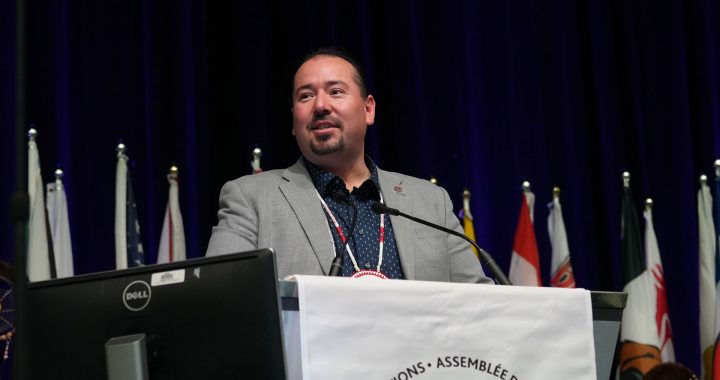Indigenous Services Minister Marc Miller says that while parts of Ontario continue to be ravaged by the COVID-19 pandemic, Manitoba is the greatest concern at the moment.
“The province has the highest rate of new COVID cases in the country. This has been putting a significant strain on the healthcare resources,” Miller said at a news conference in Ottawa Wednesday.
“Officials are encouraging everyone to stay home as much as possible, and to limit potential exposure to the virus and to get vaccinated.”
With questions surrounding the delivery of the Moderna vaccine, Ottawa said that officials are encouraged by the changes to the storage requirements for the Pfizer vaccine which will make it easier to transport.
“(This) is really a game changer. Because it offers you the vaccine to be able to store, unlike before, as you remember, that it had to be stored in -80 freezer you know for the duration of the vaccine,” said Dr. Tom Wong, the health specialist at Indigenous services.
“And now Pfizer can be stored in a regular vaccine fridge at two to eight degrees Celsius so much easier and that’s you know the kind of refrigerator you can find in the north as well as in the south.”
Indigenous services said that 75 per cent of Indigenous adults across the country have had a first dose of the vaccine – and that this has helped to reduce infections.
“I’m encouraged to see the overall number of cases dropping as the vaccination rates increase, however the pandemic is not yet behind us,” Miller said. “I want to again congratulate all indigenous leaders, healthcare workers and communities who have taken part in the vaccination effort and played such crucial roles in making those more positive numbers a reality.
“We’re doing much better now than in other points during this crisis and in order to keep this momentum we must remain vigilant.”
As of May 25, there are 741 active COVID-19 cases in First Nation communities in Canada.
Feds couldn’t keep up with Indigenous communities’ demand for nurses, paramedics: AG
According to Auditor General Karen Hogan, the federal government was unable to meet more than half of the demands for nurses and paramedics from Indigenous communities and organizations during the COVID-19 pandemic.
In a report released Wednesday, Hogan also found that Indigenous Services Canada didn’t have fulsome data on how much personal protective equipment it had available when the pandemic began.
“The lack of complete and accurate data on the contents of the PPE stockpile made it difficult for the department to monitor its inventory levels and determine its needs,” Hogan said in her audit.
The department also didn’t have enough of some items, including gloves and hand sanitizer, but it was able to adjust its approach to respond to the needs of the Indigenous communities.
“We found weaknesses in the way that Indigenous Services Canada managed its stockpile of PPE,” she said.
Hogan said the department was able to step up with these supplies and ship them to Indigenous communities and groups when provinces and territories were unable to do so.
The department also expanded access to contract nurses and paramedics to all Indigenous communities and streamlined its hiring processes, according to the audit.
But with increasing demand, the department was unable to meet more than half of the 963 requests for such personnel to be made available.
The department employs primary health care workers to deliver direct health care services in 51 remote or isolated First Nations communities.
The report said nurses in these communities work out of nursing stations or health centres and are often the only health care providers working on site.
They work in pairs or small groups, often with little or no on-site support from other health care professionals, according to the report.
The department also provides funding to First Nations communities and First Nations health authorities so they can employ health care workers to provide health care services.
A statement from ISC released Wednesday afternoon accepted Hogan’s recommendations – but added that the government is doing its part.
“While the report focuses on direct operations on PPE and health human resources, there are many other ways in which the department provided support,” said the statement. “We provided significant funding to First Nations, Inuit, Métis and urban Indigenous organizations to mobilize their own pandemic response teams, provide PPE supplies and implement many other public health and broader social measures to mitigate against COVID-19.
“The department also took immediate steps to avoid essential service interruptions in remote and isolated communities by standing up a contract for the delivery of dedicated air services to transport nurses from across Canada to remote and isolated communities.”










